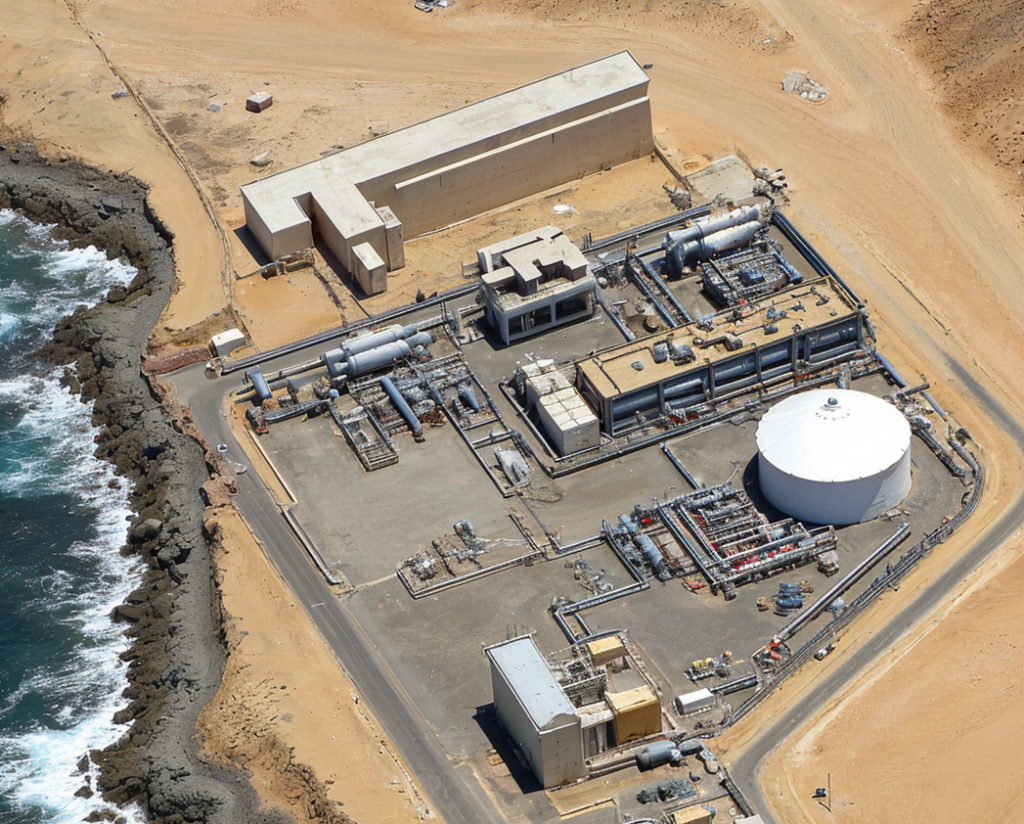Karachi-The Government of Sindh has launched Pakistan’s first seawater desalination project under a Public-Private Partnership (PPP) model. This groundbreaking project, led by the Karachi Water and Sewerage Corporation (KWSC), aims to address Karachi’s severe water scarcity. The city, home to over 20 million people, faces a daily water deficit of nearly 600 million gallons. To combat this crisis, the plant will produce 5 million gallons per day (MGD) of potable water. Moreover, this initiative uses advanced Reverse Osmosis (RO) technology, ensuring a reliable water supply. Approved by the PPP Policy Board, the project highlights the importance of collaboration between public and private sectors in solving critical urban challenges.
At the center of this project is Reverse Osmosis (RO) technology, a highly efficient method for desalinating seawater. The plant features a 1.3-kilometer pipe, which extends 2 meters below low tide, drawing seawater efficiently. Additionally, a modern pumping station with deep-well turbine pumps ensures consistent operations. The treated water will flow to the Ghazi Pumping Station through Coast Guard Chowrangi, supported by a backup system. Furthermore, the plant is scalable, allowing future production to increase to 6.5 MGD. This added capacity supports bottled water production, which could further enhance financial sustainability. As a result, the plant will address Karachi’s water challenges while offering long-term operational flexibility.
The desalination plant follows the Design, Build, Finance, Operate, and Transfer (DBFOT) model. This ensures a strong partnership between public and private stakeholders. Over a 27-year concession period, the project includes two years of construction and 25 years of operation. After the Commercial Operation Date (COD), the Government of Sindh (GoS) will provide capacity payments. These payments will cover debt servicing, fixed costs, and equity returns. In addition, variable payments based on water output will drive performance and ensure transparency. By reducing risks for private investors, the project builds confidence in PPP models. Consequently, it stands as a model for addressing Karachi’s pressing water needs.
The investor solicitation process for this project began on January 12, 2025. Bids are due by March 18, 2025. Interest from both local and international investors has been strong, given the project’s scale and impact. Notably, the plant’s optional expansion to 6.5 MGD offers additional economic opportunities. This increased capacity will allow investors to diversify revenue through bottled water sales, further lowering tariffs for consumers. Furthermore, this innovative financial mechanism demonstrates how PPP projects can deliver public benefits while attracting private investment. Therefore, this project is both a solution to Karachi’s water crisis and a driver of economic growth.
Sindh has emerged as a leader in using the PPP model for transformative infrastructure projects. Globally, PPP frameworks have bridged critical infrastructure gaps, with countries like the UAE and Singapore achieving remarkable outcomes. Sindh’s approach aligns with these best practices by integrating rigorous technical, legal, and financial assessments. In Pakistan, where the infrastructure financing gap is nearly $10 billion annually, this PPP initiative offers a sustainable solution. Moreover, the desalination plant showcases how collaborative governance can overcome resource constraints. Additionally, it sets a precedent for PPP projects in other sectors like healthcare, energy, and urban development.
The launch of Pakistan’s first PPP-based seawater desalination plant is a milestone for Sindh and Karachi. By addressing Karachi’s water shortage through cutting-edge technology and innovative financing, the project sets a new benchmark for sustainable urban development. Furthermore, it highlights the potential of public-private collaboration in solving critical urban challenges. This initiative not only benefits Karachi but also strengthens Sindh’s position as a leader in innovative infrastructure solutions. As this project progresses, it could inspire similar PPP ventures nationwide, paving the way for a resilient and sustainable future.
The bidding documents for the project may be accessed and downloaded through the Public-Private Partnership Unit, Finance Department, Government of Sindh. Follow the link: https://tiny.cc/KWSC



